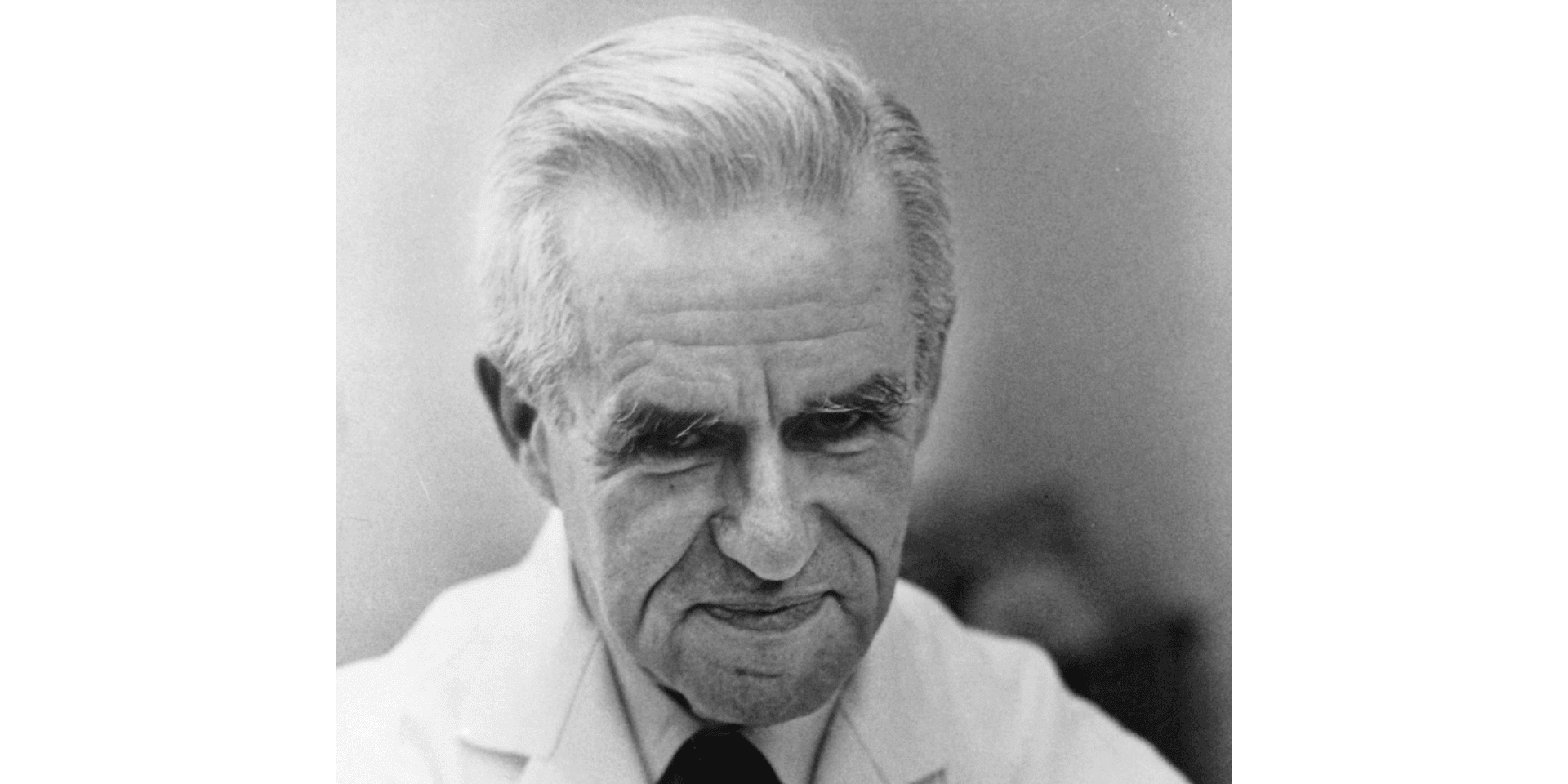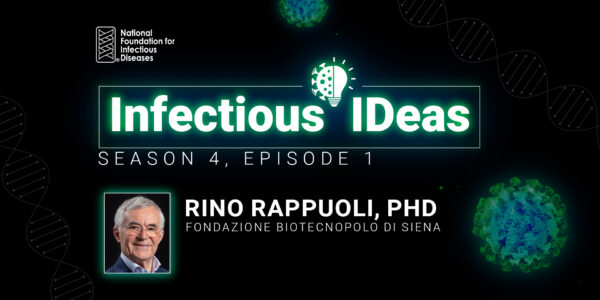The Maxwell Finland Award for Scientific Achievement honors scientists who have made outstanding contributions to the understanding of infectious diseases and public health.
Rino Rappuoli, PhD, of the Fondazione Biotecnopolo di Siena, received the 2025 NFID Maxwell Finland Award for Scientific Achievement, in recognition of his work as an innovator, scientist, and a leader in the field of microbial pathogenesis and vaccine development which has had a tremendous impact on public health. Over the past 40 years, Rappuoli has led major breakthroughs that have transformed how vaccines are developed. His work includes developing revolutionary technologies to help develop safer and more effective vaccines for diseases including Hib disease (Haemophilus influenzae type b), influenza (flu), pneumococcal disease, and whooping cough (pertussis). He pioneered a new method called reverse vaccinology, which uses genetic information to design vaccines, and led to the first successful vaccine against meningococcus B, which can cause meningitis and other dangerous infections. “Rino Rappuoli’s visionary leadership has transformed the way we discover and develop vaccines,” said Steven Black, MD, co-director of the Global Vaccine Data Network and emeritus professor of pediatrics at Cincinnati Children’s Hospital. “His scientific achievements have saved millions of lives and continue to shape the future of global public health.” Rappuoli remains committed to advancing vaccines for both emerging threats and underserved populations around the world.
Tribute Video
Acceptance Speech
An Interview with Rino Rappuoli
What is your greatest professional accomplishment?
The greatest achievement of my career has been working at the intersection of cutting-edge science and real-world application, contributing not only to the discovery of innovative vaccines, but also to their development, licensure, and global use to improve people’s health.
What has been your greatest professional challenge?
The greatest challenge was the development of the vaccine against meningococcus B, a terrible disease that can kill a healthy child within hours, destroying families. Everyone in the field was trying to solve this problem using conventional technologies, with little success. It was clear to me that the only way out of this impasse was to move beyond the scientific tools of the time and harness the revolutionary technological innovation of the 1990s.
The project, which seemed impossible at the time, came along at a unique time in history, when it first became possible to sequence the genomes of living organisms. The urgent need led to a collaboration with Craig Venter and Richard Moxon, resulting in the development of reverse vaccinology, an approach that not only solved the meningococcus B vaccine problem but also paved the way for using genomics to develop many other vaccines.
Who or what inspired you to work in infectious diseases?
I was lucky to be born in a small provincial city in Italy that had a unique scientific legacy. In 1904, Achille Sclavo, a university professor and hygienist, founded an institute there to produce sera and vaccines. By the 1960s, Albert Sabin chose that same institute to develop his poliomyelitis vaccine. The lectures of Albert Sabin and the impact of the Sabin vaccine, which I received as a child, left a deep impression on me and showed me the power of science in overcoming devastating diseases.
My professional career was shaped by Emil Gotschlich at Rockefeller, Jack Murphy and Alvin Pappenheimer at Harvard, and Stanley Falkow at Stanford, but also by many collaborators. One who stands out is Mariagrazia Pizza, who led the discovery and scientific development of the acellular pertussis and meningococcus B vaccines. Working with these individuals allowed me to translate dreams into real vaccines that are saving lives.
Who do you most admire, and why?
I admire visionary scientists who see revolutionary innovations before others do and pursue their dreams despite scepticism until those dreams become reality. Craig Venter and David Baker are examples of those I admire today.
What are the greatest threats and opportunities for the profession?
We are in a unique moment when science and technology have never been more exciting or powerful. We have technologies that can solve major problems, from improving pandemic preparedness to enhancing the quality of life for aging populations, to tackling neurodegenerative diseases that have an infectious component. Unfortunately, we are also living in a moment when anti-science movements are gaining traction in many parts of the world, standing in the way of progress and impeding a better quality of life. We are living in a difficult moment, but I believe it will be temporary, because the impact of science is so powerful that no one can stop it.
What are the greatest changes you have seen since your career began?
The greatest changes have been the innovative vaccine technologies, including reverse vaccinology, structural vaccinology, adjuvants, synthetic biology, and artificial intelligence. However, perhaps the most important change has been in the way scientists work, which has evolved from individual scientists to large multidisciplinary teams that work together to solve problems.
Knowing what you know now, what, if anything, would you do differently?
I feel very fortunate. I achieved more than I thought I would, and at my age I can still contribute. I have no regrets.
What is your advice for the next generation of infectious disease professionals?
Science and technology are making this the best moment in history to address infectious diseases. New technologies can provide equitable solutions for the global population. We need to be resilient, overcome the anti-science challenges of the moment, and trust in the future.
Any additional thoughts?
My favorite quote, translated from the Italian poet Dante Alighieri, is “We were not born to live in ignorance like animals, but to explore the universe and its secrets, to improve our knowledge, and use it for the benefit of humanity.”
For additional perspectives from Rino Rappuoli, PhD, listen to the NFID Infectious IDeas podcast episode, How Passion and Purpose Drive Vaccine Innovation:



